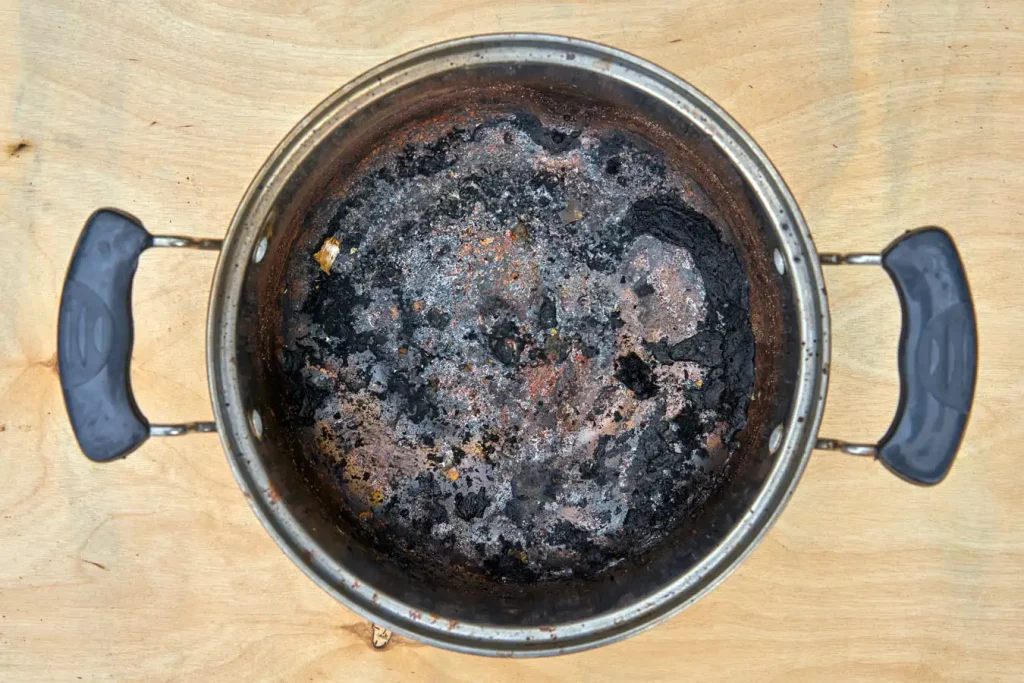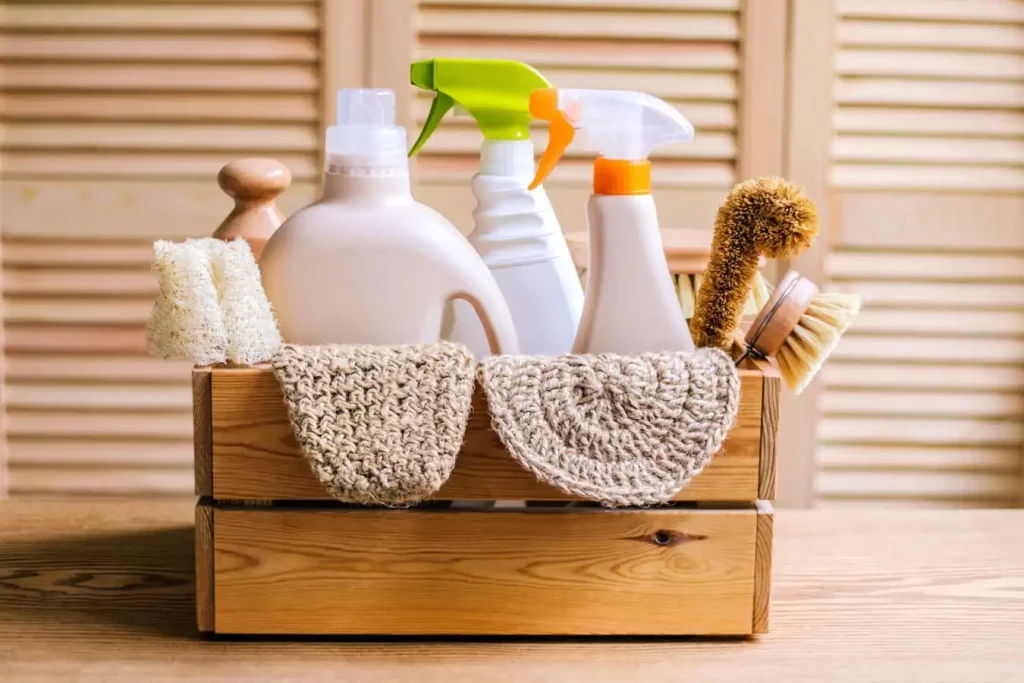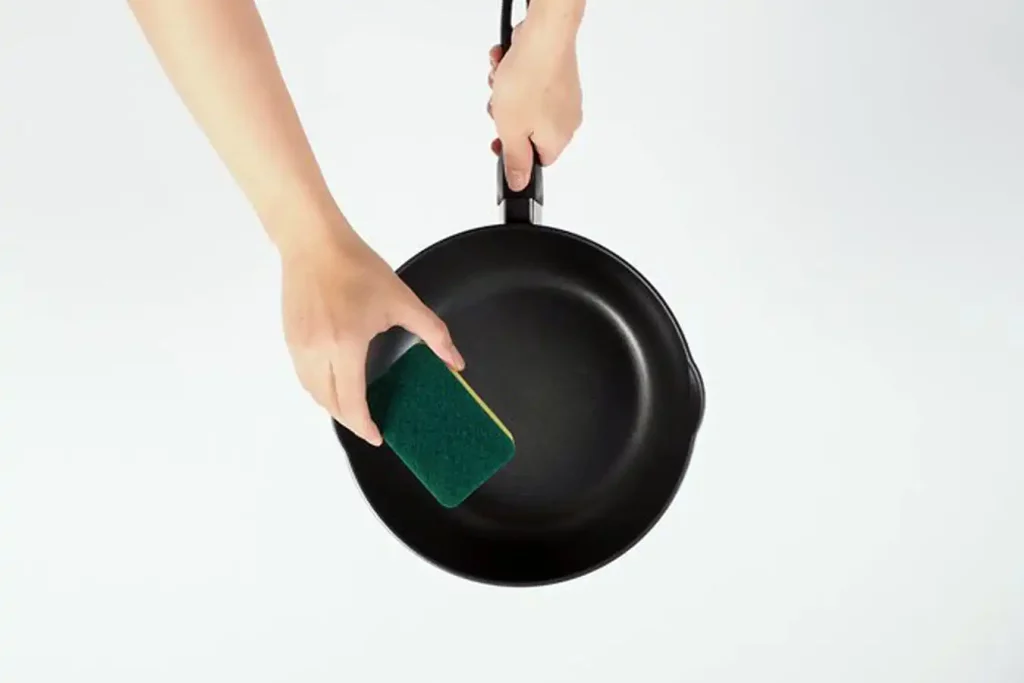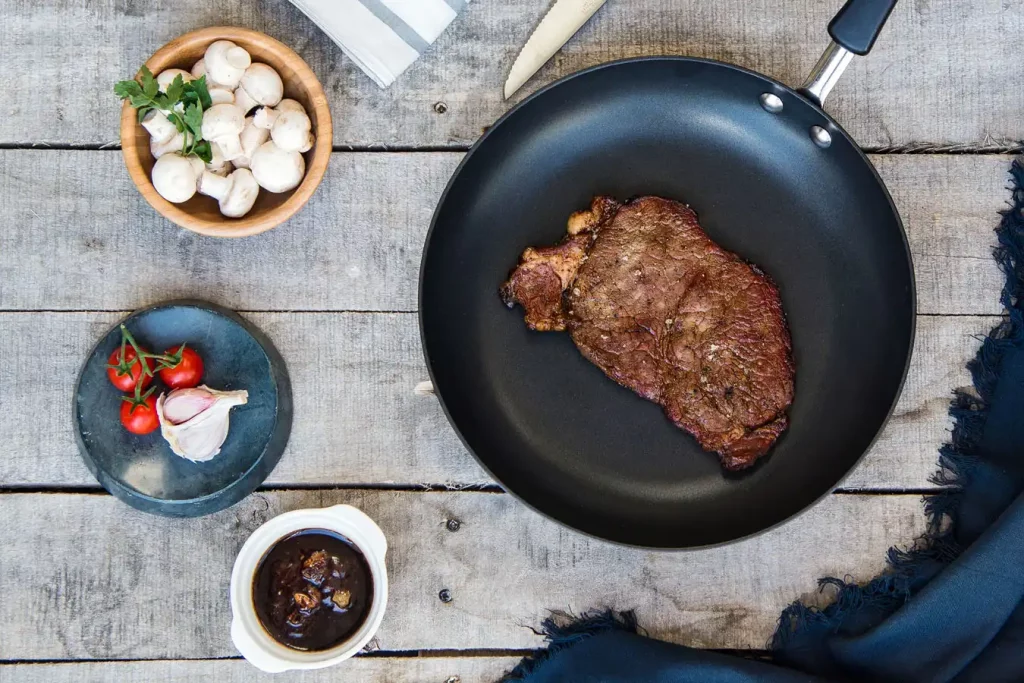Have you ever pondered on the mystery of “how to clean bacon grease from cast iron cookware”?
If so, this article is your one-stop solution.
We aim to provide you with proven methods and top-notch advice to keep your cookware spotless and extend its lifespan.
Get ready to deep dive into a world of tips and tricks that will make your cleaning routine less of a chore and more of an art.
Expect an exciting journey that will make your cooking experiences even more enjoyable, by maintaining the true essence of your cast iron cookware.
Trust me, as an outdoor enthusiast, these methods have saved my camping cookware from countless bacon breakfasts, and they will do the same for you.
Understanding Cast Iron Cookware
Before we dive into the cleaning process, let’s spend a moment appreciating the beauty of cast iron cookware. These sturdy kitchen companions have been passed down through generations, and for good reason. They are versatile, enduring, and, when cared for properly, can be your faithful companion in creating countless meals.
The Unique Properties of Cast Iron
Unlike other types of cookware, cast iron has a porous nature. These tiny pores can absorb fats, contributing to what is known as ‘seasoning’. The seasoning is essentially a layer of hardened oil that acts as a natural, non-stick surface. It not only enhances the flavor of your food but also protects the cookware from rusting.
Why Bacon Grease is Difficult to Clean
Now, bacon grease might be a delicious fat that adds flavor to your dishes, but when it comes to cleaning, it can be a stubborn opponent. As bacon cooks, it releases fat that can seep into those tiny pores we talked about. The issue arises when this grease cools down and solidifies, adhering to the pan’s surface and making it a challenge to clean.

But don’t worry! Armed with the right knowledge and a few handy tools, we can tackle this greasy issue, making your cast iron cookware ready for its next culinary adventure. And remember, our goal isn’t just to clean but to preserve the integrity of your pan’s seasoned surface as well. Stay tuned for our detailed guide on tackling bacon grease, keeping in mind the unique nature of your cast iron cookware.
Read more: How to Season a Cast Iron Skillet With Bacon Grease
Required Materials for Cleaning
The secret to effective cleaning is in the tools you use, and of course, a bit of elbow grease. Cast iron requires a gentle but efficient approach. Utilizing the right tools and cleaning agents can make the difference between a well-preserved pan and a piece of metal headed for the scrapyard.
List of Cleaning Tools and Materials
There are a few essential tools you’ll need to clean your cast iron pan:
- A non-metallic brush or scrubber: Metal can scratch the surface of your cast iron, so opt for a gentler cleaning tool.
- Soft dishcloth or sponge: Again, you want to avoid anything too abrasive that might damage the seasoning on your pan.
- Paper towels or a clean, dry cloth: These will come in handy when you’re drying your pan.

Safe and Effective Cleaning Agents for Cast Iron
When it comes to cleaning agents, you have a few options:
- Warm water: Simple yet effective, warm water can loosen up the bacon grease.
- Mild dish soap: Despite the common myth, a little dish soap won’t hurt your pan. It can help cut through the grease, but use sparingly.
- Coarse salt: If you have some stubborn spots, coarse salt can act as a gentle abrasive.
Also learn: Remove Carbon Buildup on Cast Iron Skillets
Step-by-Step Guide to Clean Bacon Grease from Cast Iron
Now that we’ve got our tools, let’s tackle that grease. The goal here is not just to clean your pan, but also to maintain its seasoning and ensure it’s ready for your next cooking adventure.
Step 1: Allowing the Pan to Cool
Resist the temptation to clean your pan while it’s still hot. Cast iron retains heat very well, and plunging a hot pan into cold water can cause it to warp or even crack. Instead, let your pan cool down naturally.
Step 2: Removing Excess Grease
Once your pan is cool, use a paper towel to wipe out any excess grease. This isn’t the final clean, but it’ll make the next steps easier.
Step 3: Scrubbing the Pan
Now it’s time to get scrubbing. If there are no stubborn burnt bits, simply use your brush or sponge, some warm water, and a drop of dish soap. However, if you’re faced with more stubborn residue, sprinkle some coarse salt onto the pan and scrub gently with your brush. The salt acts as an abrasive, lifting off the residue without damaging the pan’s seasoning.
Step 4: Rinsing and Drying
Rinse off your pan with warm water, ensuring all soap and salt residues are washed away. Then, it’s crucial to dry your pan thoroughly to prevent rust. Wipe it down with a towel, and if you want to be extra sure it’s dry, pop it onto a warm stove for a few minutes to evaporate any leftover moisture.
In short, to clean bacon grease from cast iron cookware, warm the pan, wipe out grease, scrub residue with salt-water paste, rinse, dry and apply a light oil coat.
Remember, caring for your cast iron pan means it can be a kitchen companion for years to come, creating delicious meals and unforgettable memories.
To know more: How to Wash Dishes While Camping
How to Maintain Your Cast Iron Pan
Now that we’ve tackled the cleaning process, let’s dive into maintaining your cast iron pan. Keeping your pan well-seasoned and stored correctly will enhance its performance and longevity, turning this humble kitchen item into a precious family heirloom.

Seasoning Your Cast Iron Pan
Seasoning is an essential process that forms a natural, non-stick coating on your pan. Here’s how to season your pan:
- Apply a thin layer of cooking oil to the inside of your clean, dry pan.
- Place it upside down in a preheated oven at 375°F (190°C).
- Bake for about an hour, then let it cool in the oven.
Perform this seasoning process regularly, and your pan will develop a beautiful, glossy patina that’s naturally non-stick.
Storing Your Cast Iron Pan Properly
Correct storage is just as important as proper cleaning. Always store your cast iron pan in a dry place to avoid rusting. If you’re stacking it with other pots or pans, consider placing a layer of paper towel in between to prevent scratching.
Learn more: How to Clean a Cast Iron Skillet After Cooking Bacon
Common Mistakes to Avoid
Maintaining a cast iron pan is not just about doing the right things, but also about avoiding common mistakes. Here are a couple of no-nos:
Using Dish Soap or Harsh Detergents
While a little dish soap won’t hurt your pan, using it frequently or opting for harsh detergents can strip away the pan’s seasoning. Try to limit soap use and instead, rely on warm water and a scrubber for regular cleaning.
Soaking the Pan in Water
It might be tempting to let your pan soak after a hearty cooking session, but water is a cast iron pan’s worst enemy. It can lead to rust and damage the seasoning. Instead, clean your pan promptly after use and ensure it’s thoroughly dry.
Taking care of a cast iron pan may seem like a labor of love, but when you’re savoring the perfectly cooked bacon or that impeccably seared steak, it’ll be worth every moment. Remember, a well-kept cast iron pan doesn’t just cook food; it makes memories.
To know more: Why Is My Cast Iron Sticky After Seasoning
Alternative Cleaning Methods
While the cleaning methods outlined above will cover most situations, there are a couple of alternatives that you can use. These methods utilize common household items and can be particularly effective in dealing with stubborn, stuck-on food or burnt spots.
Cleaning with Salt and Potato
This might sound like an odd combination, but it’s an age-old trick that works wonders. Here’s what you need to do:
- Sprinkle a generous amount of coarse salt over the surface of your pan.
- Cut a potato in half and use the cut side to scrub the salt into the pan.
- The salt acts as an abrasive, while the potato provides a safe way to scrub without scratching the pan.
- Once you’ve scrubbed all the problem areas, rinse and dry the pan as usual.
Cleaning with Baking Soda and Water
Baking soda can be a great cleaning agent for many kitchen tasks, including cleaning your cast iron pan:
- Make a paste with equal parts baking soda and water.
- Apply this paste to the dirty areas of your pan and scrub with a non-metallic brush or scrubber.
- The mild abrasive nature of baking soda helps to lift off stubborn dirt without harming the pan’s seasoning.
- Rinely thoroughly and dry the pan.
Also learn: Why is My Cast Iron Smoking
FAQs about Clean Bacon Grease From Cast Iron
What to do with bacon grease in cast iron?
Do you leave bacon grease on cast iron?
What takes grease off cast iron?
How do you remove dried bacon grease?
Final Words
The secret to the longevity of cast iron cookware is in its care. Proper cleaning and maintenance not only preserve the integrity of the pan, but also enhance the flavors of your food. When you realize that each cleaning and seasoning process builds upon the last, creating a rich, flavorful surface that’s naturally non-stick, you appreciate that you’re not just maintaining a pan; you’re cultivating a legacy.
So, next time you’re faced with a greasy, bacon-covered cast iron pan, I hope you’ll remember these tips. With a bit of care and a few minutes of your time, you’ll be well on your way to preserving the lifespan of your cast iron cookware. Here’s to many more delicious meals cooked on your well-loved, well-kept cast iron pan!


